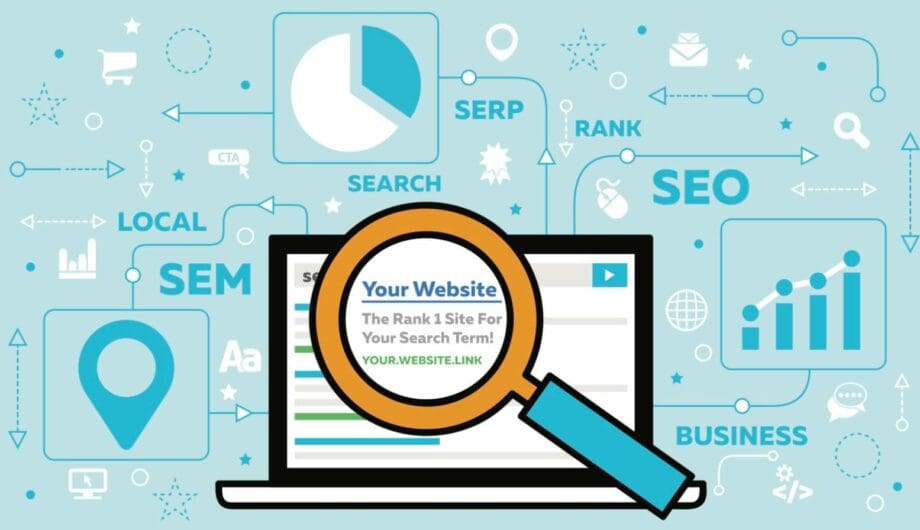
SEO is not easy, and it’s not fast. It takes time to figure out what people are searching for, what those queries mean to you, and how to get found for those queries.
One of the often overlooked aspects of SEO is looking at who IS ranking for the keywords you want. There is a lot of information to be gleaned from that search but it requires taking some time, really looking at who is ranking and thinking about why they earned that rank.
Most often, when people search for their own keywords, they only look to see where their site ranks. And it’s a good idea to keep track of where your site is ranking in general, but there are a few problems with running searches solely to see where you are ranking.
The main issue is that Google custom tailors search results, so if you visit your site a lot, there’s a good likelihood that your site will rank higher when you search than it will when other folks search. Your own search is never a good metric for where your site is ranking consistently. Use tools like SEMRush or MOZ for that data.
What’s more important is to do that search and see who is beating you. And ask yourself why. What do the other sites have that your site doesn’t?

What to look for when performing Google searches
When you are looking to see where you rank and who else is ranking, there are a lot of things you should consider. And the very first one is the most important.
Are the websites that rank for that keyword related to your own website? If you do a search and the websites who rank on page one are actually about something different than your website, then there’s a very good chance that you will never rank for that term. If Google doesn’t think your website is relevant for that search term, they won’t put you in the results, no matter how hard you optimize.
We have a page on our website where we showcase websites we’ve made for writers and authors. We love working with writers. I decided to optimize that page for the keyword websites for writers, because I wanted to be found for writers who wanted websites. That made perfect sense to me. So I optimized the page and made zero progress.
When I finally actually Googled the keyword phrase websites for writers, what I found was that the SERPs were showing results for writer’s resources, pages that give writing advice and tips for writers and not websites about websites for writers, if that makes sense. Google didn’t think that searches who typed in websites for writers were writers looking for websites, so my site was not a relevant search result.
If I had Googled that phrase before I actually optimized for that keyword, I would have discovered that early.
But what if the sites are related, and you’re on the right track? What can you learn?
This is important. If you Google your keyword and see other sites that are offering similar products and services, then you are definitely on the right track. And you can learn from the people who are ranking higher than you. Make a list and compare.
What do they have that you don’t have?
- Content. How long is their content? I had a keyword for which my site ranked #1 for a year or longer. Then it started to slip. First to #3 and then to #5. That’s when I got worried. So I looked at my competition and I found out that they had a lot more content on that page than I had on mine. So I went to writing.
- Speed. Is your site slow? Google uses page speed as a factor and if your competitors’ sites are faster, then you may start to drop.
- Encryption. Is your site encrypted? Google is prioritizing websites with SSL installed. Most reputable hosts include an SSL with your package, you just have to use it.
- Meta data. Do you have custom meta data for your site? Meta data is the title and description that someone sees in the SERPs before they click. Google claims (cough, claims, cough) that the actual details for the meta description are not used in ranking, but we do know that the click through rate on your listing does play a role. Do you know what people read before they click? Your meta title and description. Look at what your competitors’ descriptions say and look at what yours says. Could it be better? Could it be more enticing? What could you do to improve it? This is one of those things that you can constantly be changing and tweaking to try to get better results. And you should! It’s an easy thing to update for better results.
- Backlinks. This is one of the hardest to achieve, but if another site is continually outranking yours, you may need to work on your backlink strategy. It’s
Your SERP placement can vary wildly, and you can do a lot to influence that rank. But it is so important to pay attention to what your competitors are doing to make sure that your site is relevant and keeping up. Set it and forget it is never an optimal strategy for SEO. If you want to stay ahead, then you have to know where your competitors are.
Amy Masson
Amy is the co-owner, developer, and website strategist for Sumy Designs. She's been making websites with WordPress since 2006 and is passionate about making sure websites are as functional as they are beautiful.
